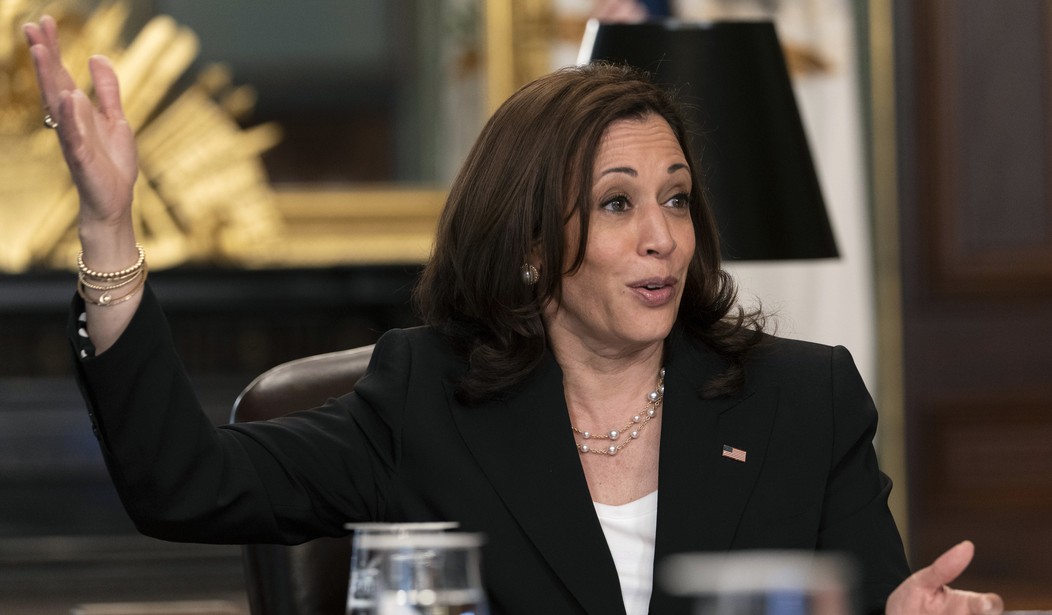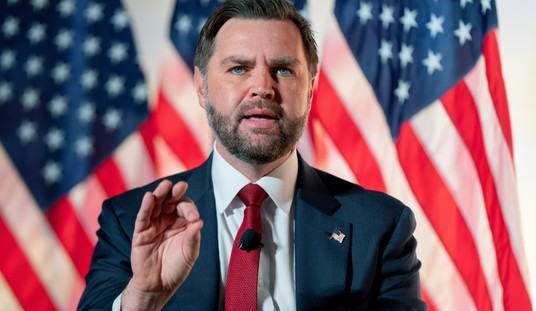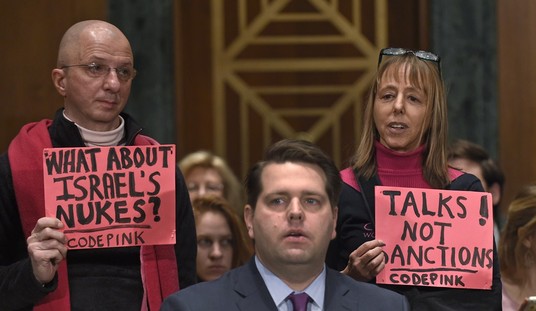Now that Joe Biden has handled the Afghan evacuation crisis with such skill, his vice president is off in Asia this week to offer her views on the future of the Indo-Pacific region that’s been on no one’s mind recently.
Apparently, Kamala Harris is now ready to move on from the deadly debacle of Biden’s premature Afghan troop withdrawal, his belated troop redeployment there, and the resulting chaotic evacuation effort of thousands who should have been long gone by now.
Over the weekend, Harris boasted to another Asian audience there about what only she saw as the Biden administration’s “successful draw-down of the embassy” in Kabul.
That’s the draw-down carried out by military helicopters from the embassy rooftop, like the 1975 Saigon one that Biden said would never happen in Afghanistan because his pullout was so well-organized.
Harris is scheduled to address a prestigious crowd in Singapore Tuesday to “lay out her vision for the Indo-Pacific region.”
Who knew the ex-senator, who was born and spent the bulk of her public career in California at least 8,440 miles from the area, had a vision for that region, let alone one that fits whatever vision Biden might have from his vacation retreat. Harris’ late mother came from India another 4,200 miles beyond Singapore.
Harris’ trip was allegedly designed to display an ongoing American commitment to the distant, disparate Pacific region. And give her some foreign policy chops.
With the vice president so far away, however, the trip also displays the unlikelihood of a Biden resignation this week. But it will give Singapore and Vietnam’s leaders exposure to Biden’s possible successor.
According to administration briefing notes on her trip, Harris’ speech will focus on economic partnerships, global health issues like the pandemic still raging there, and security. All overlaid with the cliched theme of how interconnected and interdependent the world has become, in case two or three people have not yet noticed the Internet.
Talking up the need for interconnections will be a tough sell in locales so close to an expansive China for a foreign affairs rookie like Harris after Biden’s messy exit from Afghanistan.
Especially as TV screens around the world remain filled with images of terror and panic in Kabul as the United States wraps up yet another military defeat, an unsuccessful 20-year military intervention against local insurgents with a chaotic exit not unlike the humiliating 1975 one in Saigon.
If today’s world is so interconnected and interdependent, what will leaders in Asia see in their future with a confused U.S. administration that botches the withdrawal of troops that is so widely supported by Americans tired by endless – and ultimately useless — military interventions and trainings abroad?
Not likely that any U.S. administration — even usually eager Democrats — is up for another intervention soon to defend an ally. China’s taking notes. Are you watching, Taiwan?
Coming just weeks after Biden assured Afghan’s elected — and now exiled — president that the U.S. still had his country’s back.
Not to mention leaving that misbegotten land in such a hurry that the U.S. “accidentally” armed the conquering insurgents with some $85 billion in modern weaponry and military gear intended for government Afghans. Thank you, American taxpayers.
Harris is also set to praise U.S. partnerships with Singapore and other nations in that region and claim that they remain a top priority because “we are stronger when we work together.”
This from a president who declined to take phone calls from worried foreign leaders as the Taliban (the word means “students” in Pashto) surged across Afghanistan in recent weeks. And a U.S. administration that failed to inform loyal NATO allies of its sudden abandonment of the Bagram Air Base last month, leaving others to rescue their own citizens stranded in Kabul and elsewhere.
After Singapore, Harris will move on to Vietnam, an inopportune itinerary choice sure to recall the end of the last U.S. military defeat in a poorly-planned exit that abandoned thousands of local collaborators and produced that iconic. chaotic evacuation of the Saigon embassy in the face of suddenly advancing insurgents.
Harris, who’s supposed to be overseeing the southern border crisis for Biden, took criticism for some missteps during her first foreign foray to Guatemala and Mexico in June.
Vietnam will be tricky, too. It shares an 800-mile border with China. But Hanoi will want to be seen as an economic partner and not solely as an American ally in the efforts to contain China’s expansionist ambitions on land and sea.
It will be interesting to see how, or if, Harris handles this challenge. As well as any reference to the ignominious end to U.S. involvement in the Vietnam War, which Biden has said bears no parallel to the ignominious end to U.S. involvement in Afghanistan.
According to the late Donald Rumsfeld’s memoirs, it was a senator named Joe Biden who saw great political leverage in 1975 complicating then-President Gerald Ford’s efforts to aid South Vietnamese refugees.
But that’s the kind of inconvenient history, like hastily-organized mass evacuations that leave too many behind, that won’t come up during Harris’ brief visit.












Join the conversation as a VIP Member